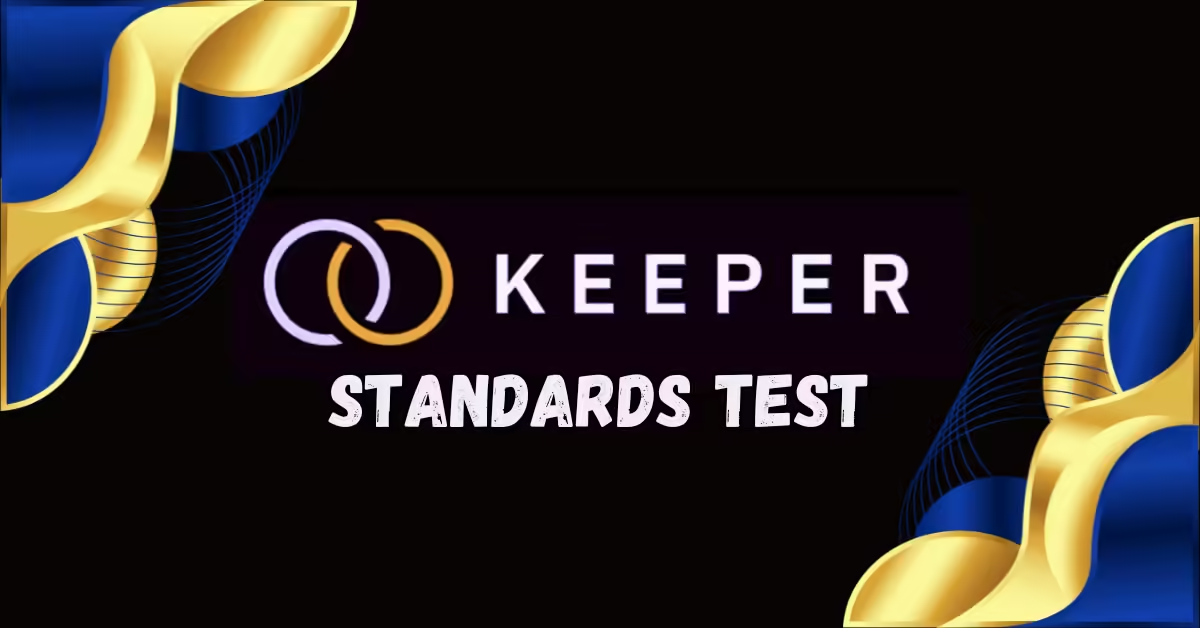In the world of dating, finding the right partner can feel like an uphill battle. With so many options available, how do you determine who truly aligns with your values, lifestyle, and relationship goals? The Keeper Standards Test provides a structured approach to evaluate potential partners. This guide will cover the essential components of the Keeper Standards Test to help you find the woman you’ve been looking for.
What is the Keeper Standards Test?
The Keeper Standards Test is a method designed to assess compatibility and suitability in romantic relationships. This test encompasses various dimensions of a partner’s personality, values, and lifestyle, ensuring that both individuals can build a healthy and lasting relationship.
Why the Keeper Standards Test Matters
- Clarifies Relationship Goals: The test helps individuals define what they want in a partner.
- Facilitates Honest Communication: Open discussions about expectations can lead to a stronger connection.
- Identifies Core Values: Understanding shared values helps build a solid foundation for a relationship.
- Encourages Self-Reflection: The test prompts individuals to think about their own desires and preferences.
7 Essential Components of the Keeper Standards Test
1. Shared Values
The foundation of any successful relationship is shared values. Whether it’s views on family, career, or spirituality, aligning on fundamental beliefs is crucial.
Questions to Ask:
- What are your views on family and parenting?
- How do you prioritize work-life balance?
- What role does spirituality or religion play in your life?
Finding common ground in these areas can significantly impact long-term compatibility.
2. Communication Styles
Effective communication is the backbone of a healthy relationship. Understanding how each person communicates can help in navigating conflicts and expressing needs.
Questions to Ask:
- How do you prefer to handle disagreements?
- Are you open to discussing feelings and emotions?
- What’s your approach to resolving misunderstandings?
Knowing how your partner communicates will foster an environment of openness and trust.
3. Lifestyle Compatibility
Lifestyle choices, such as hobbies, travel preferences, and daily routines, can either bring a couple closer or create friction. Evaluating compatibility in this area is essential for harmony in a relationship.
Questions to Ask:
- How do you like to spend your weekends?
- Are you an introvert or an extrovert?
- How important is physical fitness or health to you?
Understanding each other’s lifestyles can help you plan activities and spend quality time together.
4. Relationship Expectations
Every individual has unique expectations when it comes to relationships. Discussing these upfront can prevent misunderstandings and future disappointments.
Questions to Ask:
- What are your views on commitment?
- How do you feel about monogamy versus open relationships?
- What role does romance play in your relationships?
Clearly defining expectations will create a stronger bond and help navigate potential challenges.
5. Emotional Availability
Emotional availability refers to a person’s readiness to engage in a relationship. Assessing this component is vital to ensuring both partners are on the same page.
Questions to Ask:
- Are you ready for a serious relationship?
- How do you handle emotional intimacy?
- Have you worked through past relationship issues?
Emotional readiness can significantly influence the health of a relationship.
6. Conflict Resolution Skills
Conflict is a natural part of any relationship. Knowing how to handle disagreements can make or break a partnership.
Questions to Ask:
- How do you typically react when you’re upset?
- Do you prefer to resolve conflicts immediately or take time to cool down?
- How do you feel about seeking help from a therapist if needed?
A partner with strong conflict resolution skills can help create a supportive environment for both individuals.
7. Future Goals
Lastly, discussing future goals is crucial for assessing long-term compatibility. Understanding each other’s aspirations will help you support one another on your journeys.
Questions to Ask:
- What are your career aspirations?
- Do you want to travel extensively in the future?
- What is your vision for a family life?
By aligning your goals, you can build a future together that fulfills both partners’ desires.
Preparing for the Keeper Standards Test
To effectively utilize the Keeper Standards Test, individuals should approach it with an open mind and a willingness to engage in meaningful conversations. Here are some tips to prepare:
1. Self-Reflection
Before evaluating potential partners, take time to reflect on your own values, desires, and relationship goals. Understanding yourself will help you articulate your needs clearly.
2. Choose the Right Setting
Find a comfortable and private setting to discuss the components of the Keeper Standards Test. This will encourage open communication and make both partners feel at ease.
3. Be Honest
Honesty is critical when discussing expectations and values. Be transparent about your feelings and desires, and encourage your partner to do the same.
4. Keep an Open Mind
Be prepared to hear differing views and opinions. Approach the conversation with curiosity rather than judgment to foster a deeper understanding.
Common Mistakes to Avoid During the Keeper Standards Test
While taking the Keeper Standards Test, it’s important to avoid common pitfalls that can hinder productive discussions:
1. Skipping Important Questions
Don’t overlook essential components of the test. Addressing all seven factors will provide a comprehensive understanding of compatibility.
2. Being Too Rigid
While having standards is important, being overly rigid can lead to missed opportunities. Stay flexible and open to new perspectives.
3. Focusing Only on Negatives
Instead of concentrating solely on what you don’t want in a partner, also highlight the positive traits you seek. This balance can create a more constructive dialogue.
The Role of Emotional Intelligence in the Keeper Standards Test
Emotional intelligence (EI) is a vital component of successful relationships. High EI helps individuals navigate the complexities of their own emotions and those of their partners.
Importance of Empathy
Empathy allows partners to understand and support each other better. By actively listening and validating each other’s feelings, couples can create a nurturing environment.
Self-Regulation
Being able to manage one’s emotions plays a crucial role in conflict resolution. Individuals with high emotional intelligence can approach disagreements with composure and understanding.
The Importance of Trust and Respect in Relationships
Trust and respect are the cornerstones of any successful relationship. Without these elements, even the most compatible partners can struggle to build a strong connection. Establishing a foundation of trust ensures that both partners feel safe and secure, allowing them to be vulnerable with one another.
Building Trust
Building trust takes time and consistent effort. Here are a few key ways to foster trust in your relationship:
- Be Honest: Honesty lays the groundwork for trust. Share your thoughts and feelings openly, even when it’s difficult.
- Keep Promises: Follow through on commitments. When you make a promise, do your best to keep it. This shows reliability and builds confidence in your partner.
- Be Supportive: Show up for your partner in times of need. Being there for each other strengthens the bond and reinforces trust.
Fostering Respect
Respecting each other’s individuality is crucial for a healthy relationship. Here’s how to cultivate respect:
- Listen Actively: Give your partner your full attention when they speak. Show that you value their opinions and feelings.
- Value Differences: Appreciate the unique qualities each person brings to the relationship. Embrace the diversity of thoughts, experiences, and backgrounds.
- Set Boundaries: Healthy relationships require clear boundaries. Respect each other’s space, needs, and limits to create a nurturing environment.
By prioritizing trust and respect, you not only enhance your relationship but also create a supportive and loving atmosphere. This, in turn, helps both partners thrive individually and as a couple.
FAQs About the Keeper Standards Test
1. What is the Keeper Standards Test?
The Keeper Standards Test is a method to evaluate compatibility in romantic relationships, focusing on shared values, communication styles, lifestyle choices, and more.
2. How can I prepare for the Keeper Standards Test?
Self-reflection and choosing a comfortable setting for discussions are essential preparations. Be honest and keep an open mind during the conversations.
3. What questions should I ask during the Keeper Standards Test?
Ask questions related to shared values, communication styles, lifestyle compatibility, and relationship expectations to gauge compatibility effectively.
4. How important is emotional intelligence in relationships?
Emotional intelligence is crucial for navigating emotions, resolving conflicts, and building a supportive environment within a relationship.
5. Can the Keeper Standards Test help in long-distance relationships?
Yes, it can provide clarity on values and expectations, helping partners navigate challenges specific to long-distance relationships.
6. Should I take the Keeper Standards Test with every partner?
While not necessary for every date, it can be beneficial in evaluating serious relationships and determining compatibility with potential long-term partners.
7. How do I know if a partner is emotionally available?
Emotional availability can be assessed by discussing past relationship experiences, emotional intimacy, and readiness for a committed relationship.
8. What if my partner and I have different future goals?
Differences in future goals can be challenging, but open communication and compromise may help find common ground.
9. How can I improve my communication skills?
Practicing active listening, being open to feedback, and engaging in regular conversations about feelings can enhance communication skills.
10. Can the Keeper Standards Test change over time?
Yes, as individuals grow and evolve, their values, desires, and expectations may change, warranting a re-evaluation of compatibility.
Conclusion
The Keeper Standards Test is an invaluable tool for anyone navigating the complex world of dating. By evaluating shared values, communication styles, lifestyle choices, and more, individuals can find the right partner who aligns with their relationship goals.
Remember, successful relationships are built on mutual understanding, open communication, and shared aspirations. By implementing the Keeper Standards Test in your dating journey, you’ll be better equipped to find the woman you’ve been looking for and create a meaningful, lasting relationship.

Joseph Bush is a seasoned writer and researcher with over 7 years of experience covering a wide range of general topics, from lifestyle and technology to business and current events. He is dedicated to producing fact-checked, reader-friendly content that informs, engages, and empowers readers.
Throughout his career, Joseph has followed strict editorial guidelines, relied on reputable sources, and ensured every article meets the highest standards of accuracy and clarity. His expertise spans multiple fields, allowing him to explain complex topics in a way that’s easy to understand.
Passionate about continuous learning, Joseph stays updated on industry trends and best practices to deliver trustworthy, well-rounded insights. Readers can rely on his work for its credibility, depth, and real-world relevance.




